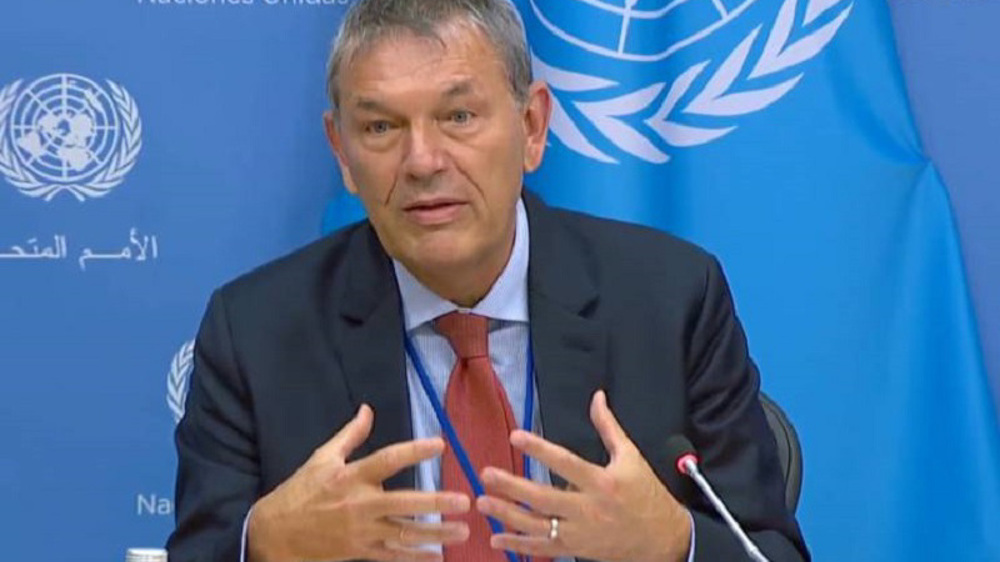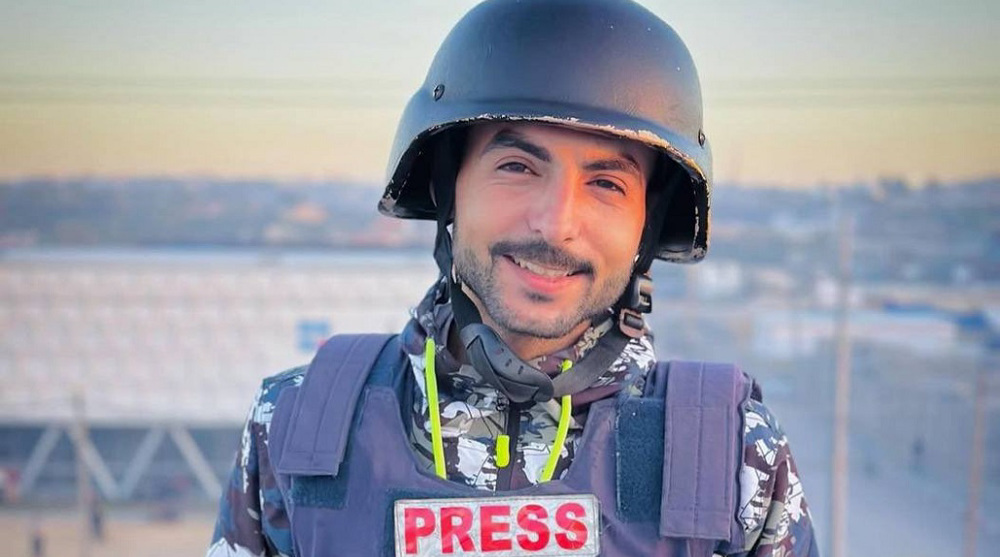Jordanian king in occupied West Bank on rare visit
Jordan's King Abdullah II has started an official visit to the occupied West Bank, the first trip in five years to the Palestinian territories by the custodian of the al-Aqsa Mosque compound in Jerusalem al-Quds.
Abdullah arrived in Ramallah on Monday as President of the Palestinian Authority Mahmoud Abbas welcomed him on a red carpet near the king’s helicopter. There was no briefing with reporters.
Jordan’s official Petra news agency said in a statement that the king traveled to Palestine to hail the “steadfastness” of the people in occupied Jerusalem al-Quds against recent Israeli measures to restrict access to the al-Aqsa Mosque compound.
Abdullah said on Monday that the holy site “would have been lost many years ago” if it was not for Jordan’s custodianship and the steadfastness of the people in occupied Jerusalem al-Quds.
The site is the third holiest site for Muslims after Mecca and Medina in Saudi Arabia.

According to Petra, the Jordanian king also urged the United States to intensify its efforts to help bridge the gaps between the Palestinians and Israelis.
Israel installed metal detectors at the gates of the site three weeks ago after three Palestinians opened fire on Israeli police forces deployed to the area, killing two of them. Palestinians and the Jordanian government criticized the restrictive measures and protests continued until the regime in Tel Aviv removed the detectors and other barriers on July 27.
The peace treaty of 1994 between Jordan and Israel recognizes Amman’s status as the official custodian of the holy sites in Jerusalem al-Quds.
Jordan has not recognized Israel’s 1967 occupation of east Jerusalem al-Quds and other parts of the West Bank. Nearly half of Jordan’s population of 9.5 million is comprised of the descendants of the Palestinians who escaped the war and many of those refugees still live in camps in the country.
Many blame Jordan’s policies for the failure of repeated attempts for the establishment of a Palestinian state as the country enjoys close relations with Western governments that support Israel. Critics also say that Amman has always fallen short of piling enough pressure on Israel over the expansion of settlements in the West Bank, a major impediment to the so-called peace process between the Palestinians and Israelis.
During the recent escalation of tensions over al-Aqsa Mosque, an Israeli guard shot dead two Jordanians at the Israeli embassy compound in Amman after one of the men reportedly attacked the guard with a screwdriver.
The attack came amid surging public anger in Jordan over Israel’s restrictive measures in al-Aqsa Mosque. Tensions between Jordan and Israel eased after Jordanians handed over the Israeli guard and Israeli Prime Minister Benjamin Netanyahu promised to investigate the incident.
UNRWA unraveled amid Israel's allegations, reduced intl. support
Palestinian journalist, a Sobh Media Festival awardee, killed in Gaza hours before truce
Jan. 15: ‘Axis of Resistance’ operations against Israeli occupation
VIDEO | US fires: Criticism mounts over govt. failure to respond
VIDEO | Fears, hope in Gaza amid intensified ceasefire efforts
VIDEO | Press TV's news headlines
Hamas: Ceasefire agreement result of steadfastness, resistance in Gaza over 15 months
Hamas thanks Iran, Resistance Front following achievement of ceasefire in Gaza












 This makes it easy to access the Press TV website
This makes it easy to access the Press TV website